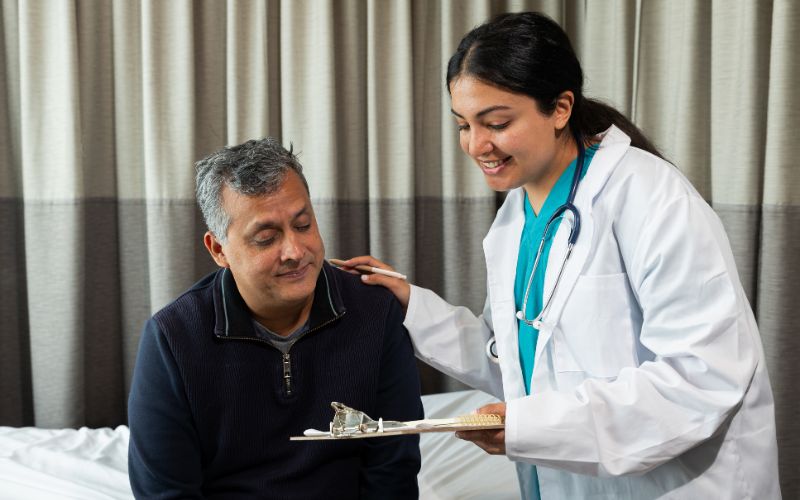
- Details
- By Neely Bardwell
Today, Senators Catherine Cortez Masto (D-Nev.) and Markwayne Mullin (R-Okla.) reintroduced the IHS Workforce Parity Act to make it easier for Indian Health Services (IHS) to recruit and retain medical workers.
The reintroduced bill comes on the heels of a wave of federal layoffs aimed at the IHS. While the layoffs were rescinded, the move sent panic through Indian Country among tribes and Native health organizations. It also comes a week after the Senate Committee on Indian Affairs held an oversight hearing during which William Smith — chairperson of Valdez Native Tribe and chairperson of the National Indian Health Board — attested to the critical needs of healthcare in Indian Country.
The bipartisan legislation was initially introduced during the last Congress, where it passed the Senate unanimously but did not make it to voting in the House of Representatives.
The IHS Workforce Parity Act would allow providers working part-time to access IHS scholarship and loan repayment programs, making it easier for doctors to stay working at IHS clinics.
Historically, IHS, which provides health care to more than 2.5 million American Indians and Alaska Natives, has a 25- 30% staff vacancy rate.
“The severe shortage of IHS health care providers poses a threat to the quality of care that Nevadans in Tribal communities receive. That is unacceptable,” Senator Cortez Masto said in a statement. “It is time for Congress to come together to pass my common sense, bipartisan legislation and provide real solutions for Indian Country.”
Republican Senator Mullin said in a statement that he is confident the legislation will address the current barriers IHS faces when it comes to recruiting and retaining healthcare professionals.
“Rural health care providers like IHS have unique staffing needs, and our bill offers a flexible, cost-effective solution to ensure IHS maintains a competitive edge when considering new recruits. In strengthening the workforce, IHS can ensure a proper quality of care to their patients and improve patient outcomes,” Mullin said.
More Stories Like This
Johns Hopkins Collecting Tribal Success Stories from $1.5B Opioid SettlementArizona MMIP Task Force Holds Listening Session for Survivors and Families
‘A good stew is a story’ Blackfeet buffalo rancher shares Three Sisters Buffalo Stew recipe
National Indian Health Board Urges Congress to Extend Enhanced Premium Tax Credits
$1.25 Million Grant Gives Hope to Tolowa Dee-ni' Nation Amid Housing Crisis


